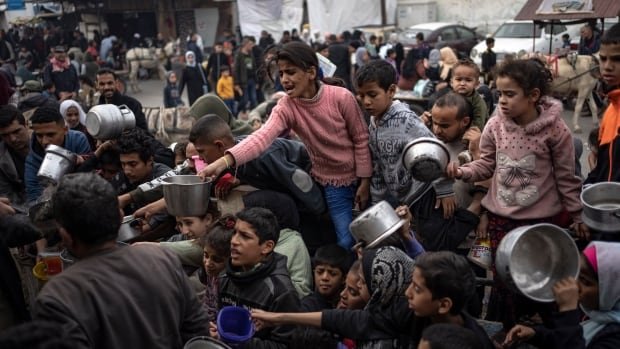Canadians trapped in Gaza are asking for help as Ottawa announces new measures to help Canadian families evacuate war zones.
Mahmoud Kouta of London, Ontario. He told CBC News that he has been trapped in Gaza since the current Israel-Hamas war broke out.
The air and ground war was launched in response to Hamas’s brutal attack on Israeli civilians on October 7th. The war has left nearly 20,000 Palestinians dead, some 1.9 million displaced and much of northern Gaza destroyed, according to the Hamas-run Gaza Health Ministry.
Kouta, who lives in northern Gaza, said he fled to Rafah in the south with his wife and 18-month-old daughter after their home was bombed.
Israeli authorities have ordered fleeing Palestinian civilians to head to Rafah and several other towns, which are subject to regular shelling by Israeli forces.
“Nowhere is safe,” Kota said.
“When I go in search of water, when I go in search of food, I say goodbye to my wife. I kiss my daughter, but I hope this is not the last kiss I give her.”
“I can’t explain how we feel when we hear the sounds of bombing. All we can do is calm our children down.”
People flooded overburdened health centers on Wednesday after a strike in the southern Gaza city of Rafah.
Last month, hundreds of Canadians and permanent residents were able to escape from Gaza through the Rafah checkpoint on the Egyptian border. Foreigners were able to leave Gaza under an apparent agreement between the United States, Egypt, Israel and Hamas-brokered Qatar, but evacuations have since slowed.
Federal Immigration Minister Mark Miller on Thursday announced temporary measures to allow extended families of Canadian citizens and permanent residents to evacuate Gaza.
Miller told reporters that the government would grant temporary residency to extended families, including spouses, common-law partners, children, grandchildren, siblings, parents and grandparents, who wish to leave Gaza.
“We’ve had limited ability to remove Canadians and permanent residents, but we’ve limited that to something closer to the definition of a family unit,” he said.
“This expands the definition to allow for more people who represent families of people who may not be permanent residents or Canadians, but who are close to Canadians in every sense of the word.”
Immigration Minister Mark Miller said Canada would “commit to” removing relatives of Canadian citizens and permanent residents from Gaza, but the list of those wishing to leave would need approval from Israel and Egypt.
Miller said the current humanitarian crisis has made Gaza “uninhabitable.” But he added that the government had “no guarantees” that these families would be able to escape from Gaza. He noted that there is an extensive vetting process on the ground.
“We have a consistent list of people and their motivations for coming out based on this family definition, and now that is being expanded,” he said. “It’s not up to Canada whether they get out, but we’re going to try.”
Miller also said that immediate family members of citizens or permanent residents who left Gaza or Israel after Oct. 7 and are currently residing in Canada will be temporarily allowed to apply for a study or work permit. announced.
Kota said he tried to cross to Egypt with his parents and younger brothers a few weeks ago. His family was allowed to leave the house, but he was not. He has asked Canadian authorities for answers, but he said he has not been told why he and the rest of his family cannot leave Canada.
“All I want is to leave here with my wife and daughter and the rest of my family and get back to Canada as soon and safely as possible,” he said.
“I don’t know when I’m going to die. I don’t know when I’m going to lose my wife. I could lose my daughter.”
Prime Minister Justin Trudeau was asked earlier in the day why his government didn’t act sooner.
“It’s an extremely difficult situation and we have worked extremely hard to get Canadians and their families out of Gaza,” he said.
Prime Minister Trudeau said the government is taking further steps. He also said there was a need for a long-term focus on a two-state solution.
“What we have to do is ensure the viability of the Palestinian state alongside the Israeli state, to live in peace and to live securely into the future,” he said.

